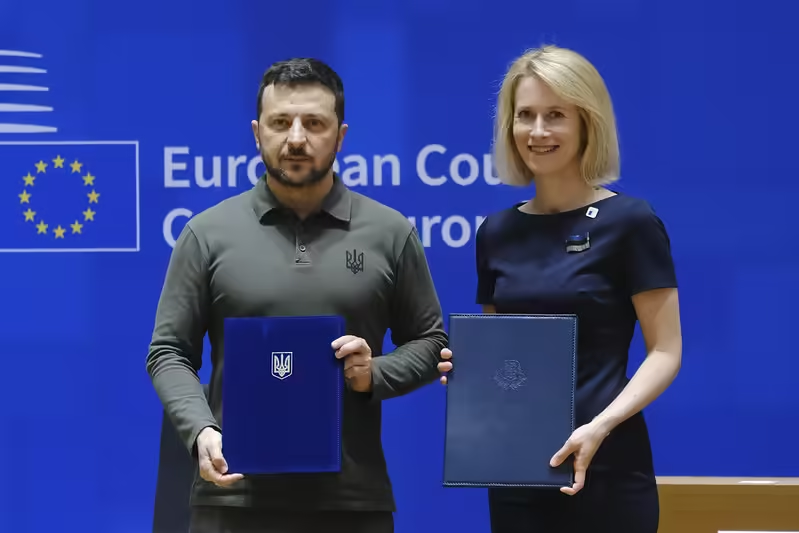Brussels, June 27, 2024 – The European Union has officially taken the final step towards exiting the Energy Charter Treaty (ECT). The President of the Council, represented by the Belgian presidency, delivered a written notification to the depositary of the ECT, signaling the Union’s withdrawal. This decision, formalized by the Council of the European Union, will take effect one year from now.
Tinne Van der Straeten, the Belgian Minister for Energy, elaborated on the implications of this move, stating, “Thanks to the political compromise found between member states, known as the Belgian roadmap, the European Union and Euratom will be leaving the Energy Charter Treaty in one year’s time, while remaining member states will be able to support the modernized Treaty. This reflects the quintessence of work within the Council; being able to achieve balanced solutions through constructive negotiation and compromise.”
The decision to withdraw, taken on May 30, 2024, includes two critical components: the European Union and Euratom’s exit from the ECT and the provision for remaining member states to support its modernization during the next Energy Charter Conference. These two elements are integral parts of what has been termed the “Belgian roadmap,” a political compromise that exemplifies the Council’s commitment to collaborative problem-solving.
The Energy Charter Treaty, established in 1998, is a multilateral agreement encompassing provisions on investment protection, dispute settlement, transit, and trade in the energy sector. However, the European Commission has deemed it incompatible with the EU’s climate goals under the European Green Deal and the Paris Agreement, primarily due to ongoing fossil fuel investments.
On July 7, 2023, the Commission proposed the withdrawal, citing the treaty’s misalignment with contemporary climate objectives. By March 1, 2024, two draft Council decisions were presented, outlining the EU and Euratom’s positions for the Energy Charter Conference, allowing member states to support the treaty’s modernization.
Minister Van der Straeten emphasized the significance of this coordinated effort, “With the two decisions adopted on May 30, 2024, the Council of the European Union gave the final green light for the European Union and Euratom to leave the Energy Charter Treaty; at the same time, remaining member states will be able to support its modernisation when voted during the next Energy Charter Conference. These decisions are linked as they form the two pillars of a political compromise known as the Belgian roadmap for the Energy Charter Treaty.”
The Energy Charter Treaty provides a multilateral framework for energy cooperation that is unique under international law. It is designed to promote energy security through the operation of more open and competitive energy markets, while respecting the principles of sustainable development and sovereignty over energy resources.
The Energy Charter Treaty was signed in December 1994 and entered into legal force in April 1998. Currently, there are fifty-three Signatories and Contracting Parties to the Treaty, including both the European Union and Euratom.
The Treaty’s provisions focus on four broad areas:
- The protection of foreign investments, based on the extension of national treatment, or most-favoured nation treatment (whichever is more favourable) and protection against key non-commercial risks.
- Non-discriminatory conditions for trade in energy materials, products, and energy-related equipment based on WTO rules, and provisions to ensure reliable cross-border energy transit flows through pipelines, grids, and other means of transportation.
- The resolution of disputes between participating states, and – in the case of investments – between investors and host states.
- The promotion of energy efficiency, and attempts to minimize the environmental impact of energy production and use.
Signatories and contracting parties to the Energy Charter Treaty include: Afghanistan, Albania, Armenia, Austria, Azerbaijan, Belgium, Bosnia and Herzegovina, Bulgaria, Croatia, Cyprus, Czech Republic, Denmark, Estonia, European Union and Euratom, Finland, France, Georgia, Germany, Greece, Hungary, Iceland, Ireland, Japan, Jordan, Kazakhstan, Kyrgyzstan, Latvia, Liechtenstein, Lithuania, Luxembourg, Malta, Moldova, Mongolia, Montenegro, The Netherlands, North Macedonia, Poland, Portugal, Romania, Slovakia, Slovenia, Spain, Sweden, Switzerland, Tajikistan, Türkiye, Turkmenistan, Ukraine, United Kingdom, Uzbekistan, and Yemen.
Norway did not ratify the Energy Charter Treaty, while Belarus did not ratify the Energy Charter Treaty but applies it provisionally.
Editor: Gabriel Ani




